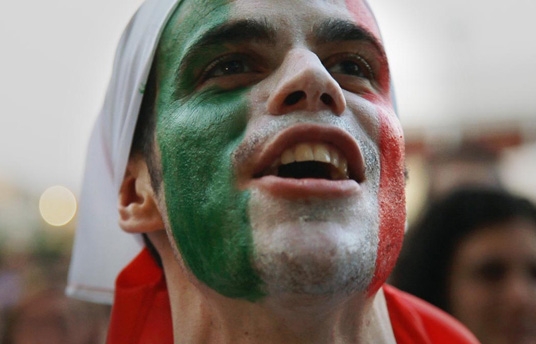Sydney Film Festival Film Review: It’s About to Rain
Jun 09, 2013

By Nicholas Davies
Haider Rashid’s first narrative feature is an accomplished look at the difficulties that sometimes face immigrants to the nations of Old Europe. It’s a theme that is explored a fair bit – DFI audiences saw Umut Dag’s ‘Kuma’ and Brahim Fritah’s ‘Playground Chronicles’ at last year’s festival, for example; ‘Kuma’ is a brave tale of a Turkish family’s attempts to retain their traditional values in contemporary Austra, while ‘Playground’ is a coming-of-age tale centred on a Moroccan family in France.
In ‘It’s About to Rain’, the setting is Italy, the family Algerian. Hamid Mahwan is 60 years old; since he came to Italy 30 years ago, he has worked tirelessly to provide for his family – his late wife and his sons, 26-year-old Said and 23-year-old Amir. Both boys were born in Italy and for them, the ‘homeland’ of Algeria is little more than an exotic fantasy – neither of them has ever set foot there.
Some of the elements Rashid uses to outline the situation faced by the family and to move his narrative forward are simple, but his careful integration of them into the story allows them to have a kind of elegance that in less skilled hands might seem a bit clunky. As the film opens, for example, Said is eagerly anticipating the final of the Euro Cup. The event itself, which he watches with his pals that allows Rashid to show that, despite what it says on his official papers, Said is through-and-through Italian – his face painted green, white and red, he sings the national anthem at the top of his lungs. Throughout, the family – Hamid included – speak in Italian, only very occasionally using Arabic to communicate.
The impact of the international financial crisis – again, a simple device, but sensibly stitched into the film – sets off a chain of events that provide Rashid with fertile ground to explore what it means to belong to a nation. A thread is cut and, quite suddenly, visa applications are rejected, residency is revoked –and Said and Amir find they must ‘go back’ to a place they have never been.
Much of the film is shot with lingering close-ups, highlighting the emotional and psychological impact the legal decision has on the family and making the film a very intimate experience. The character of Said is the film’s anchor – he is torn between the two nations, at once insisting on his Italian-ness but recognising his father’s Algerian origins – and newcomer Lorenzo Baglioni exquisitely captures Said’s struggle with careful and precise facial expressions.
But perhaps the most important thing about this film is its plain-worded, potentially provocative stance on the treatment the nations of Europe sometimes visit upon their immigrant populations: it is retrograde, racist and unjust. Written in huge all caps on the bench of the judge who is effectively ignoring the Mahwan family’s plea for reasonable and fair treatment: ‘The law is equal for everyone’.
If only, this film says to us. If only that were true.